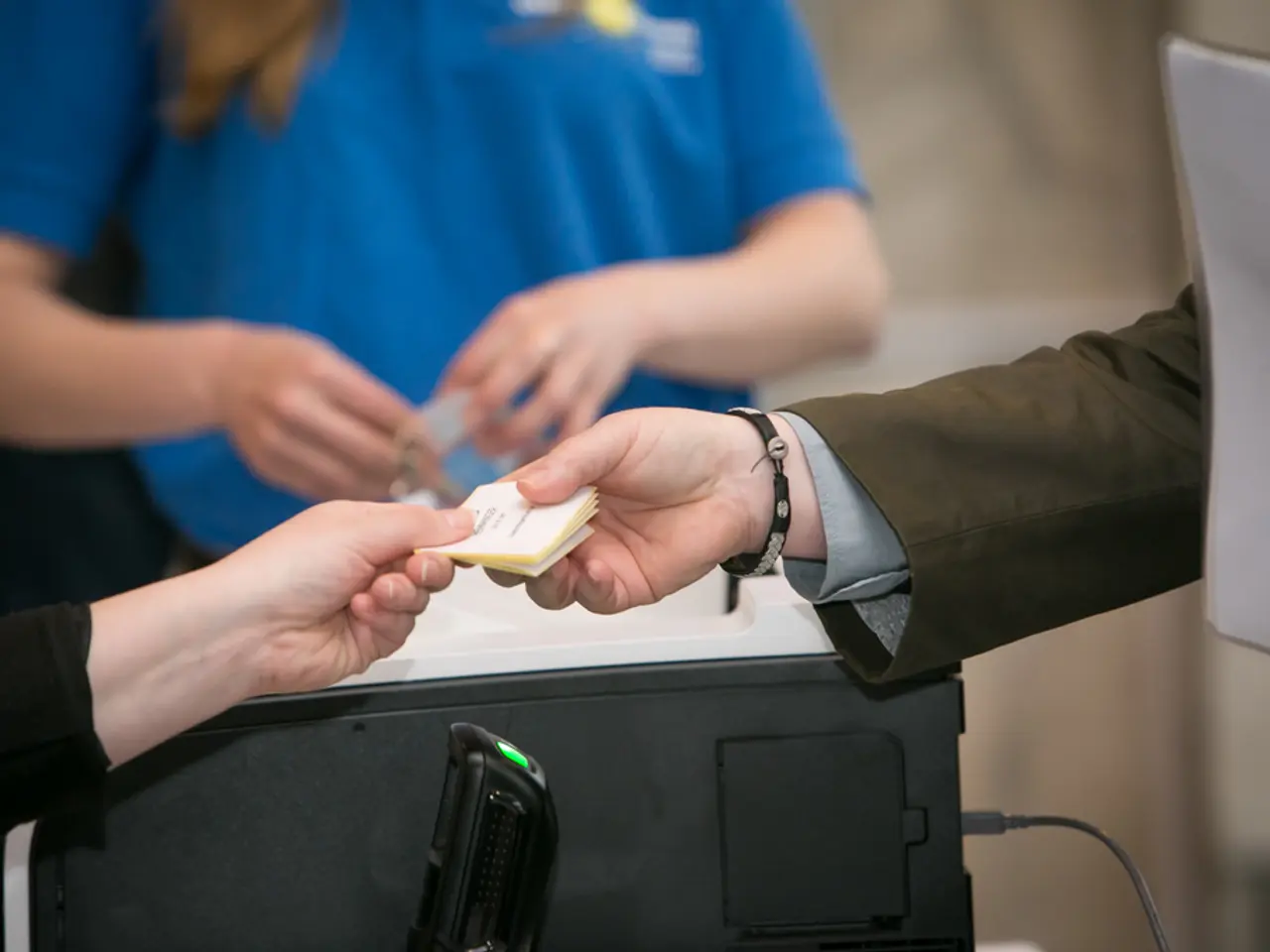High-stakes poker players, dubbed as 'high rollers', are the prime suspects when it comes to the biggest cheating incidents in the poker world, as suggested by renowned poker pro, Maria Konnikova.
Maria Konnikova, a renowned poker player and author, has amassed more than half a million dollars in tournament winnings since leaving her journalism career to focus on poker. Despite her success, Konnikova remains vigilant against cheating in the world of professional poker.
In her ongoing work, Konnikova is investigating the darker side of the game, highlighting the prevalence of cheating, particularly among high rollers. She is paranoid about the use of electronics, such as phones and AirPods, to cheat at poker, believing that even shuffling devices can be hacked, jeopardizing all games using cards.
The fight against cheating in professional poker, especially in online poker and private rooms, is a multi-faceted battle.
Online Poker: A Tech-driven Battle
Online poker operators employ a range of technologies to combat cheating. Key measures include Know Your Customer (KYC) and Anti-Money Laundering (AML) compliance, AI and machine learning tools, secure payment methods, Random Number Generators (RNG), and cybersecurity protocols.
Operator's multi-step identity verification often includes facial recognition and database checks to confirm player identities, prevent fake accounts, and monitor suspicious financial activity. AI and machine learning tools are used for real-time monitoring to flag unusual betting patterns, deposits, or withdrawals, and detect account takeovers or collusion attempts among players.
Strict controls ensure that deposits are from legitimate sources, and withdrawals are verified again to prevent fraud-related losses. Tracking device usage and IP addresses helps identify multiple accounts or cheating rings. Online poker software relies on certified RNG systems tested by independent firms to guarantee randomness and prevent manipulation of card dealing or game progression. Cybersecurity protocols such as multi-factor authentication, encryption, ISO/IEC 27001-certified information security management systems, firewalls, and continuous security audits protect player accounts and game software from hacking or tampering.
Private Poker Rooms and Live Venues: Surveillance and Regulation
In private poker rooms and live venues, surveillance and monitoring play a crucial role. Cameras and staff trained to detect cheating signals such as collusion, chip dumping, or use of illegal devices are common. Monitoring betting patterns and interactions help flag potential cheating. Regulatory compliance is also essential, with operators adhering to local gambling regulations that often mandate anti-fraud and anti-cheating measures similar to those online, including strict identity checks and financial transaction oversight.
Despite these measures, Konnikova argues that penalties are needed to make poker unprofitable for cheaters. She refuses to play in casino private rooms due to the risk of cheating, a stance she maintains even after the World Series of Poker (WSOP) implemented measures to restrict electronics at poker tables.
Konnikova's experiences in the professional poker world have introduced her to a variety of individuals, including some "scummy" ones. She believes that some people will do anything to win, especially when money is involved. Maintaining the game's integrity, even if it inconveniences people in the short term, is important to her.
In her ongoing work, Konnikova emphasizes that the same technology used to exploit poker can be used to exploit other games like baccarat. She argues that underestimating the ease with which cheating can occur in digital games is a mistake that the industry must address to ensure fair play for all.
In her continued investigation into the world of professional poker, Konnikova is concerned about the potential for technology-assisted cheating, even in games like baccarat. She advocates for stricter penalties to deter cheaters and maintains a distrust of private poker rooms and live venues due to the high risk of cheating. Konnikova's work underscores the importance of sports-betting operators and live casino establishments adopting robust security measures, including advanced technologies like AI, machine learning, and cybersecurity protocols, to combat cheating and promote fair play.




